Pottery remains a powerful testament to humanity’s creativity and rich cultural heritage amid rapid technological advancements and industrialization. This ancient craft, dating back to the earliest civilizations, continues to thrive today.
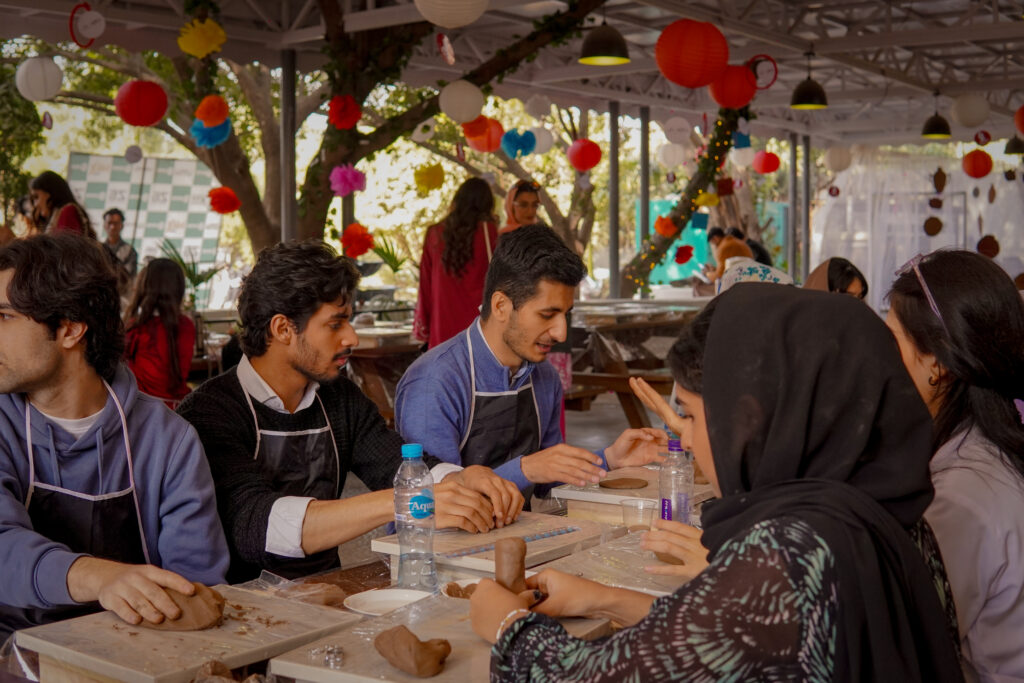
TOOP (The Order of Pen) has been at the journey of reviving lost arts, and their 3rd Pottery Workshop, held at CECOS University on February 11, 2025, marked another step in this enduring mission.This hands-on experience brought together individuals from diverse backgrounds: students, artists, and even parents, who came to shape clay with their own hands, quite literally molding history into the present.
Pottery: An Art as Old as Time
The workshop’s lead instructor, Ms. Samina Mukhtiar from the College of Home Economics, University of Peshawar, passionately introduced participants to amazing world of pottery. She emphasized how pottery is not just an art but an ancient form of expression that dates back to the caveman era. “Since the introduction of art, humans have made pottery with stones, wood trunks, and different media,” she explained.
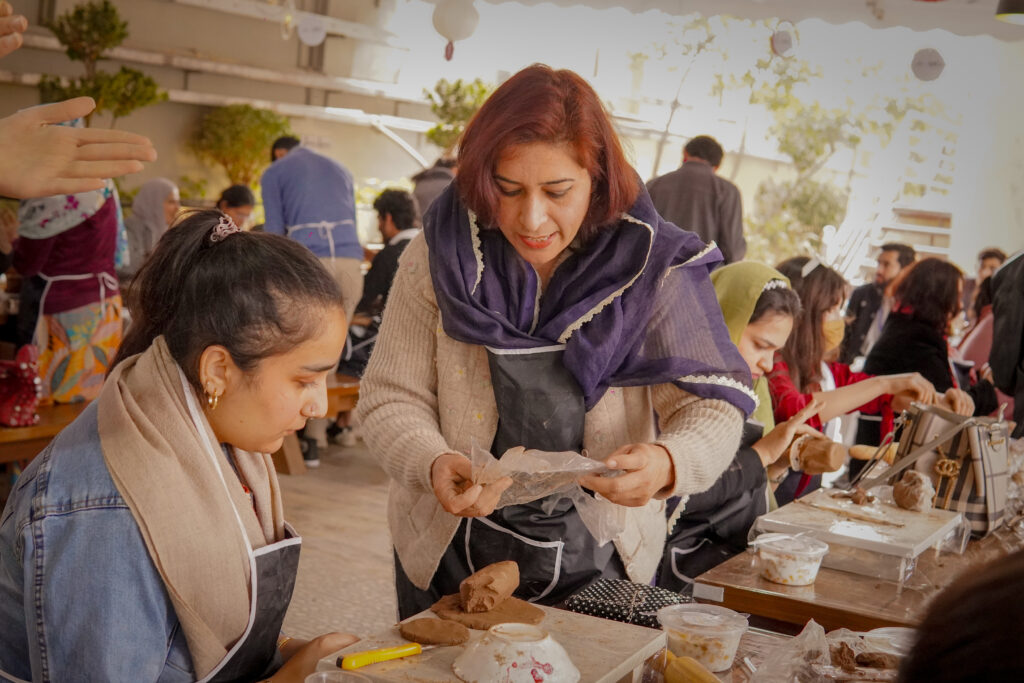
She elaborated on ceramics as a medium of pottery, including sculptures, alternative clay methods, and the science behind different types of clay. “Clay is a natural material found everywhere, but its properties depend on the land it comes from. Some clay is very plastic, while other is full of impurities that need to be refined in laboratories,” she said.
Participants learned that pottery isn’t just about shaping clay; it involves an intricate and tricky process of kneading, wedging, and removing air bubbles before molding it into the desired form.
Ms. Samina stressed the importance of aesthetic sense in pottery, saying, “The way you want to cast it, mold it: It will go with you, but the basic thing is to know the fundamentals of pottery making.”
Beyond the technicalities, she highlighted how pottery is deeply embedded in Pakistani culture. From Multani pottery to the generational potters of Sindh and KPK, the craft has been passed down for centuries.
A Platform for Everyone: From Artists to Children
The event was not just about learning a skill; it was about community, inclusivity, and self-expression. One of the participants, Spogmay Masood , a self-taught artist and student of social work, shared her enthusiasm for the initiative.
“I am very passionate about recycling crafts because I think it is important to work on today’s climate change,” she said. Spogmay has experimented with various art forms, including watercolor, oil painting, and mixed media. She appreciated TOOP’s efforts, noting, “Everyone, from children to adults, participated in the workshop. I hope that more such opportunities will be provided in the future.”
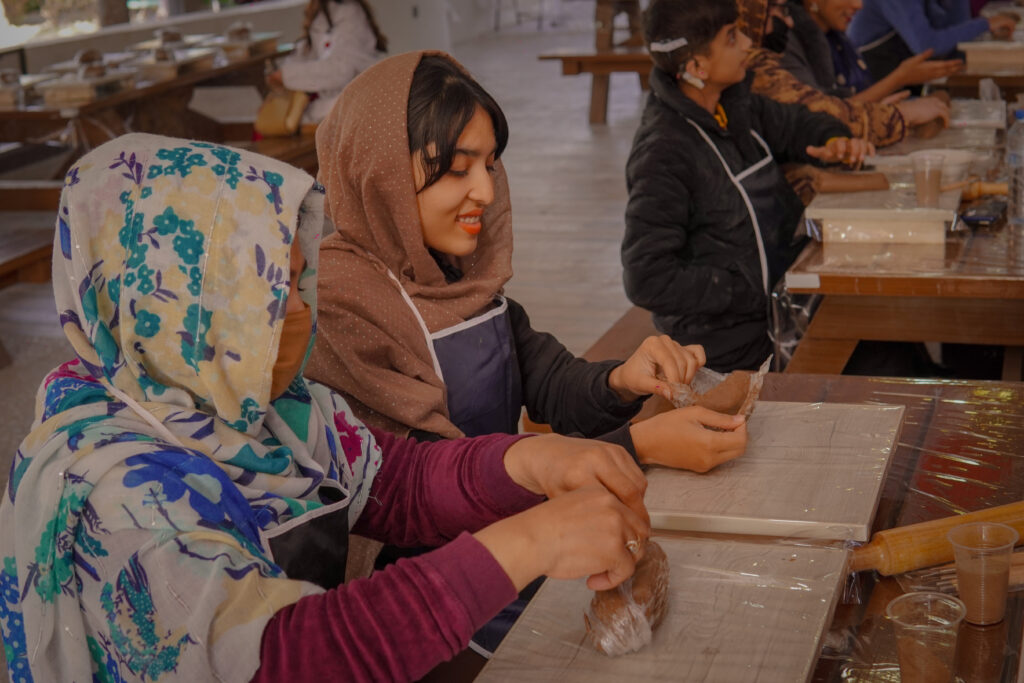
One of the most touching moments of the event came from Mrs. Imran, the mother of Yousuf: a deaf child with a deep love for fine arts.
“Art serves as therapy for him. He has been with TOOP for one and a half years, and this platform has provided him a suitable environment to express himself,” she shared. Her words reinforced the significance of such initiatives in empowering children with special needs through artistic expression.
Blending Tradition with Modern Innovation
While pottery is an age-old tradition, Ms. Samina also discussed its modern relevance. She highlighted that even today, “From our kitchen accessories to our washroom items, and all the decorative items of our house, many are made with clay.”
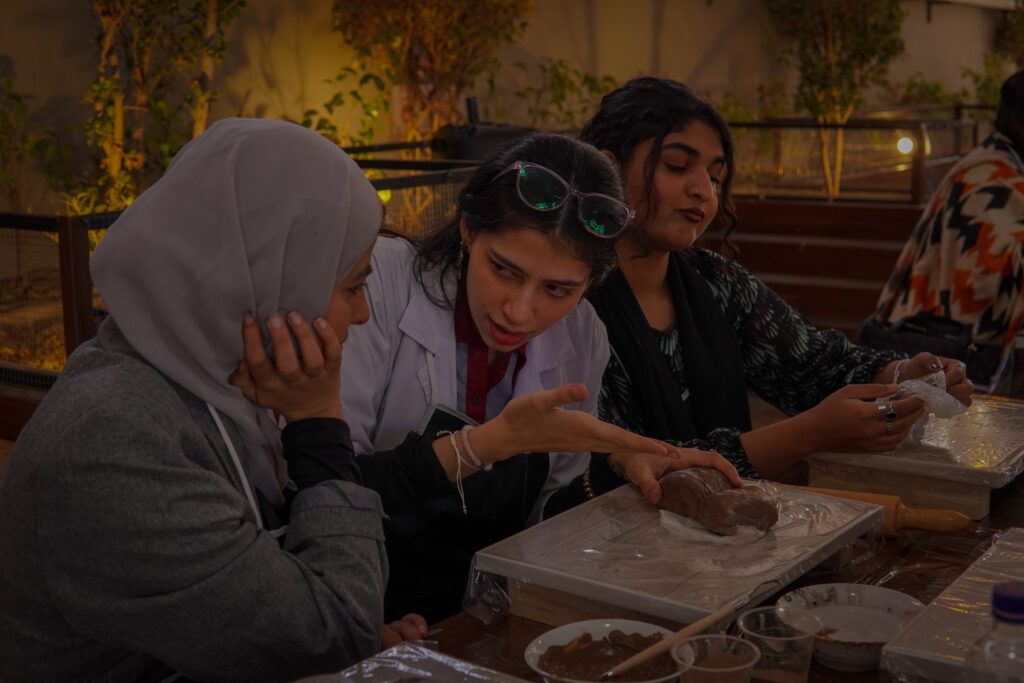
With advancements in electrical kilns, slip casting, and laboratory-equipped pottery studios, traditional techniques have merged with modern technology. This fusion has opened doors for Pakistan’s pottery industry to expand globally, with local craftsmanship being exported abroad.
A Step Towards Revival
TOOP’s 11th Pottery Workshop was more than just an event: it was a movement toward reviving a lost art, fostering creativity, and building a community. Whether it was the hands of an aspiring artist, a curious student, or a child with special needs, each pair of hands left the workshop having shaped not just clay, but also a renewed appreciation for a timeless tradition.
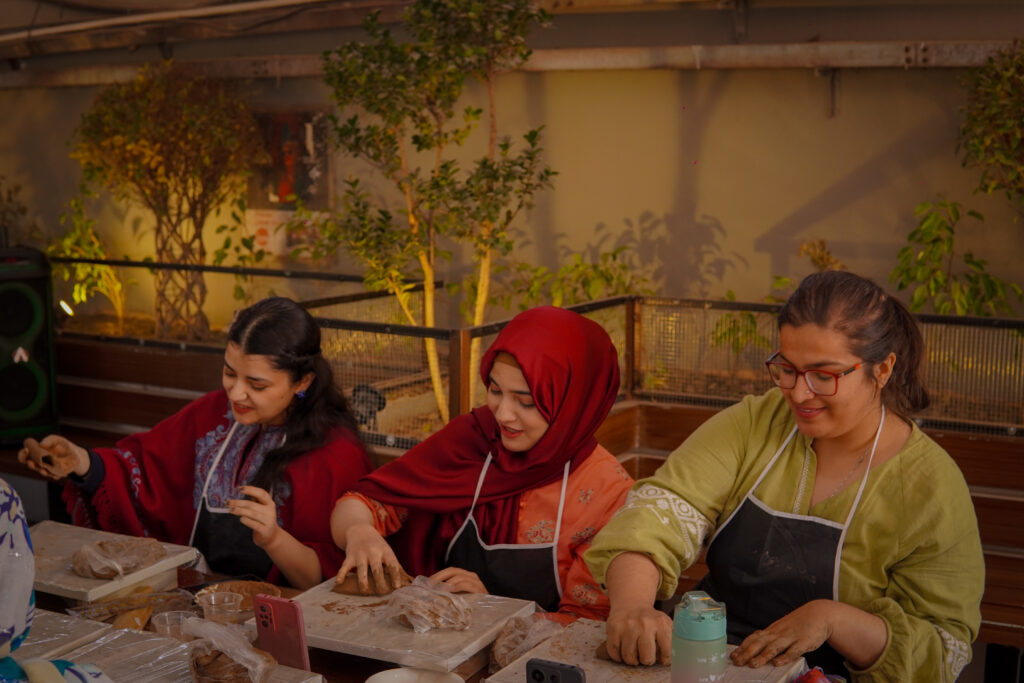
In the words of Ms. Samina, “If pottery gets the right platform, it will flourish so much that it will become one of the best sources of knowledge and artistic expression.” And with TOOP at the forefront, that future seems well within reach.






Leave a Reply